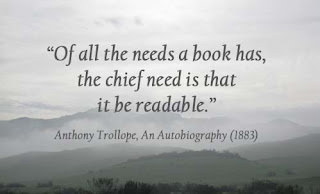I’ve
heard that people misunderstand about 80% of our communication.
Did
you know?
“It
has long been a guiding principle of writing that,
if
there is any possible way for readers
to
misinterpret what you write, they will.
The
purpose of laborious and tedious editing
is
to make the writing so precise
that
it cannot be misread and misinterpreted.”
Consider
this oh-so-true statement:
“I
know you believe you understand
what
you think I said,
but
I’m not sure you realize
that
what you heard is not what I meant.”
(Attributed
to Robert McCloskey, U.S. State Department)
So
what are you, a memoirist, to do about that?
I
offer you the following tips:
After
you’ve written a vignette—or two or three or ten—set your work aside for a few
days (or even weeks).
Later,
print your manuscript. Reading on a computer screen is different from reading
it on paper. I can’t explain why that is true, but it is. I always catch
boo-boos on paper that I miss on the computer screen.
With
printout and pen in hand, read your piece. You’ll be surprised how objective
you can be after stepping back for a while. Make notes to yourself about
changes to make.
Next,
make those revisions, keeping in mind that every good writer revises his or her
manuscript a number of times.
Set
aside your manuscript again for a few days. Then print it and read it aloud (or
use the Read-Aloud function on your computer). Your ears alert you to what your
eyes missed. Repeat this as often as necessary until you’re satisfied.
Put
yourself in your readers’ shoes and, for their sake, clarify. Simplify.
Before
you can do that,
you
might need to ask,
“What
am I trying to say?
What’s
my point?”
Have
you included lingo (Christianese, for example) or unfamiliar language (foreign
or technical, for example) that your readers might not grasp?
When
you’ve pinned all that down, ask yourself, “Will readers understand what I’m
trying to convey?”
Here’s
good advice from Jesse Hines:
“Use
the language your readers will clearly understand. . . .
Don’t
confuse your prose’s clarity
by
using jargon or stilted ‘intelligent’ words. . . .
Remember,
simple, short, and clear.”
Reword
everything that could cause confusion.
If
you don’t already belong to a good writers’ group, I highly recommend you join
one. Other writers usually offer excellent feedback.
Most
of all, have fun polishing your rough drafts. Revision is an art: Make your
story beautiful.
Remember,
stories can change individuals,
families,
communities, towns, nations
—even
the world.
Memoirs
can change lives for eternity.
Write
your story.













